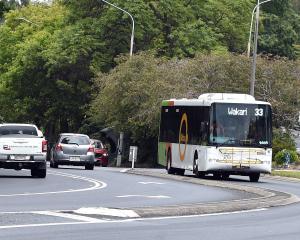
The university has announced 53 students will not be able to graduate in December because of poor attendance on placement, and in some cases the fact they falsified paperwork.
A senior resident doctor who trained at Otago said he had worked in hospitals in Beijing and Taiwan during his obligatory three-month elective in 2010.
Every week he would take an afternoon or a day off.
''The background expectation is it's like an OE,'' he said.
On his two-month stint in Bejing, he worked for five hours a day, beginning early in the morning to give him time to go sightseeing - an arrangement his supervisors agreed to.
''They [the hospital] would have to look after me, you know what I mean.
''You don't want to trouble them, and they don't want to have to constantly entertain you.''
The doctor said no-one he knew had ever falsified paperwork, but it was widely understood by his classmates about half the time-which can be served in New Zealand but is often spent overseas-would be spent on holiday.
Former students told RNZ the tradition of taking time off during work experience had gone on for decades; one said he took seven of 12 weeks off.
Dunedin School of Medicine dean Prof Barry Taylor told media on Monday the expectation of students is they will spend 11 weeks out of 12 working while at their electives, although staff did understand students might take long weekends.
Further details on what acceptable attendance terms were were unavailable yesterday.
New Zealand Resident Doctors' Association national secretary Deborah Powell said on Monday the ''line in the sand'' appeared to be moving when it came to what was acceptable and what was not, and students were being denied ''natural justice''.
Another doctor who graduated from the University of Otago in 2012 said he spent only five hours a day working while on placement in Italy and was encouraged by his supervisor to explore the country in his spare time. However, the number of hours you worked did depend on the institution, country, and the people you organised the placement with.
''A friend of mine did neurosurgery in Canada, he had a very different experience.
''He started at 5am I think, and finished late every day, and also did weekends.''
In a package offered by the university, the medical students can opt to do research or community service to make up for the time they spent on holiday.
The other terms of the offer are to write a self-reflective essay and repay portions of their final year government grant before the university will let them receive their qualifications.
An investigation into exactly how long the practice has gone on for is likely to continue into next year.
Comments
Did the students sign a contract or similar document which spelled out the conditions of their placement? Did they sign any such agreements relating to their receipt of public funds?
If they did place their signature on such an agreement, and then went on to deliberately violate its terms, then they committed academic and financial fraud. All other excuses are just dancing around this point.
Former students told RNZ the tradition of taking time off during work experience had gone on for decades; one said he took seven of 12 weeks off.
So some current working medical professionals are maybe not that professional, but we should put our trust in them? The medical council will sort it out??












